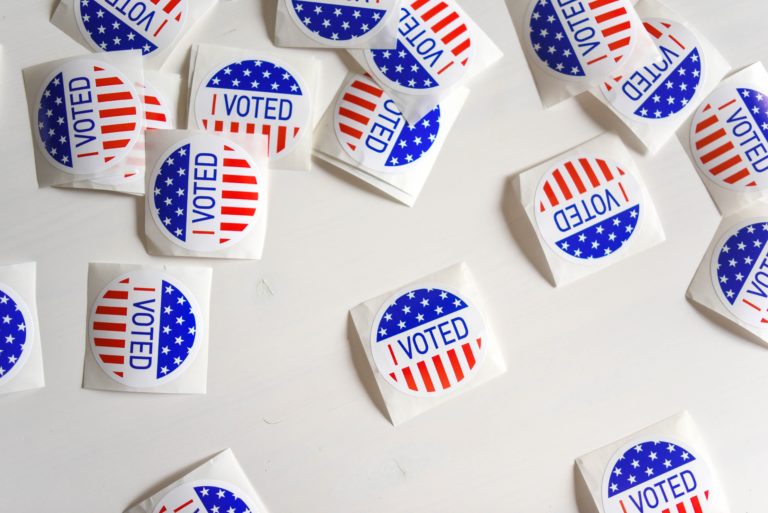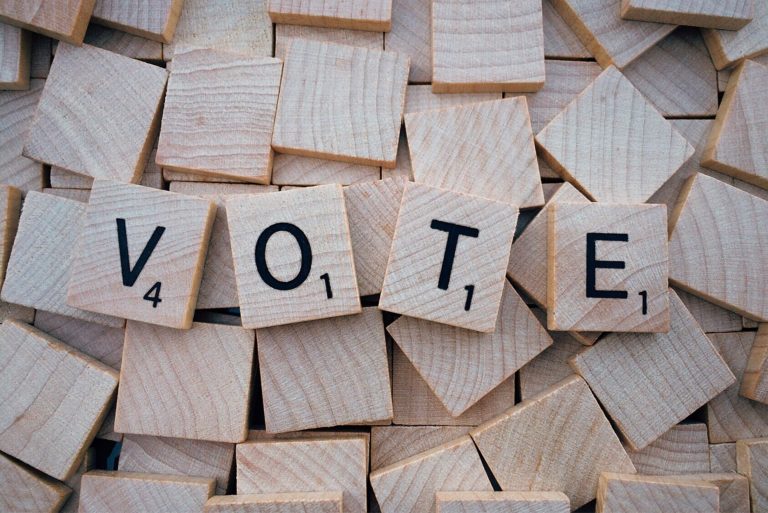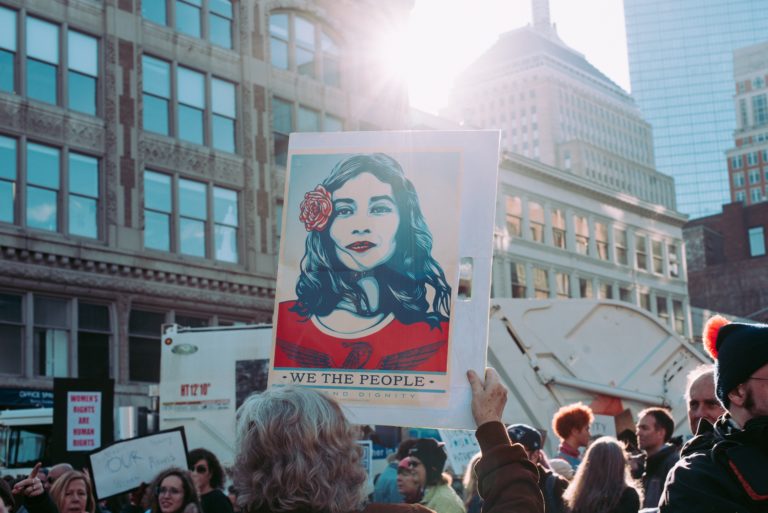On July 19, 1848, over 300 (mostly) women gathered for the Seneca Falls Convention,…
NEW RESEARCH: Don’t Overlook LGBTQ Women When You Reach Out to Voters
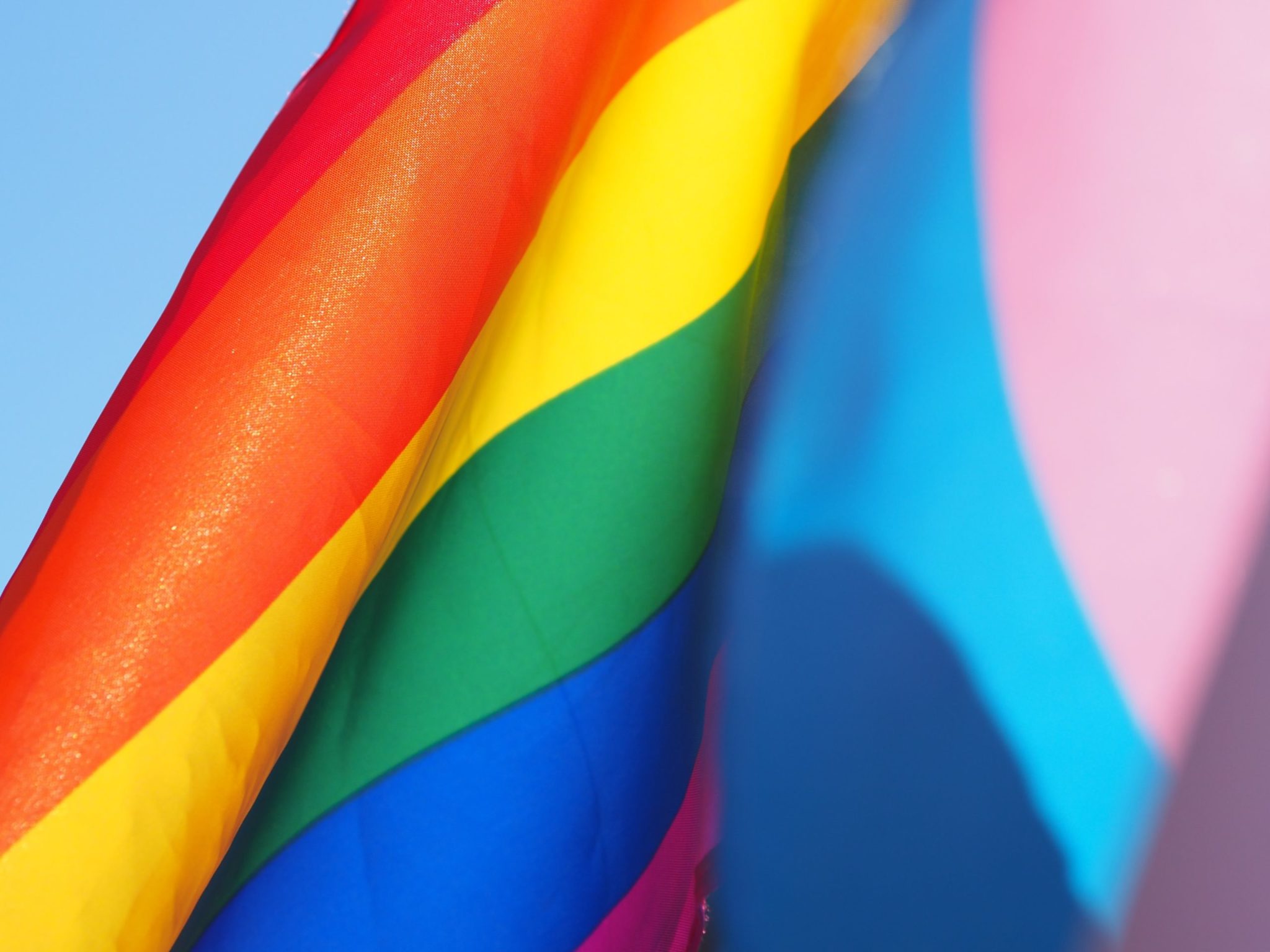
As the 2020 election cycle ramps up in earnest, we at Project LPAC have a plea to candidates and the organizations conducting outreach on their behalf: as you travel around the country, eating local foods, shaking hands and explaining your priorities on stages large and small, don’t overlook LGBTQ women voters.
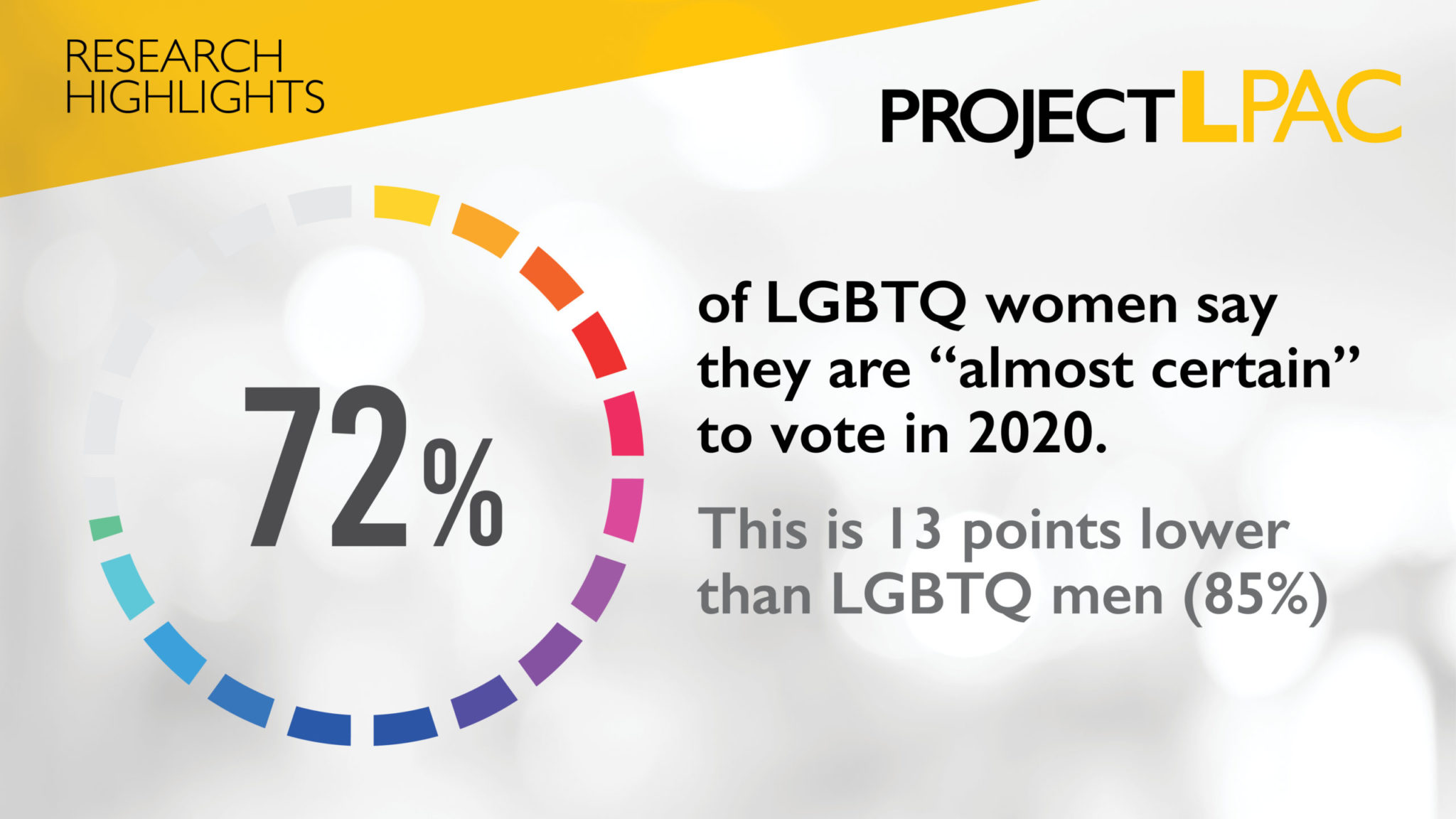
Our new research — the first ever conducted focusing solely on LGBTQ women as a specific voting bloc — has found that LGBTQ women are a unique and distinct political demographic with different needs and concerns than LGBTQ men and straight women.
And speaking to these needs and concerns — devoting time to outreach specifically targeted at the LGBTQ women’s community can pay large dividends at the polls.
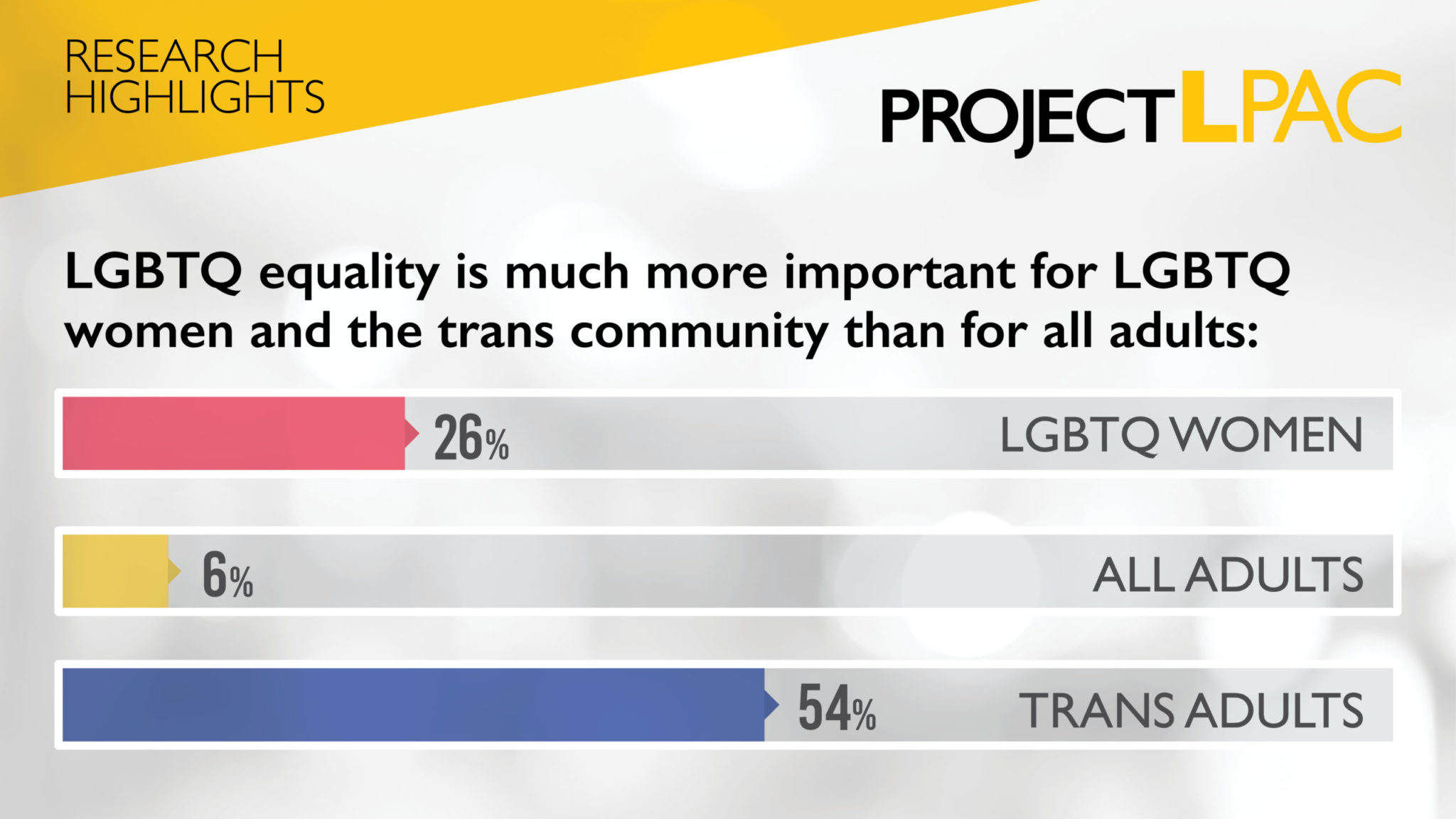
Here’s what we learned about how LGBTQ women differ in civic participation:
- They are more likely than LGBTQ men to donate time and money to causes they care about. This means they can be mobilized to donate and volunteer around a candidate who speaks to their needs as a community.
- LGBTQ women are 13 percentage points less likely to be committed to voting in 2020 than LGBTQ men (72% vs 85%). Smart candidates will see that and say: challenge accepted!
- Bonus fact: We have a blueprint for the best way to do this — 22% of LGBTQ women say they’d be up for getting more politically involved if candidates discuss LGBTQ issues, like the 28 states where it’s still legal to fire people based on their sexual orientation or gender identity.
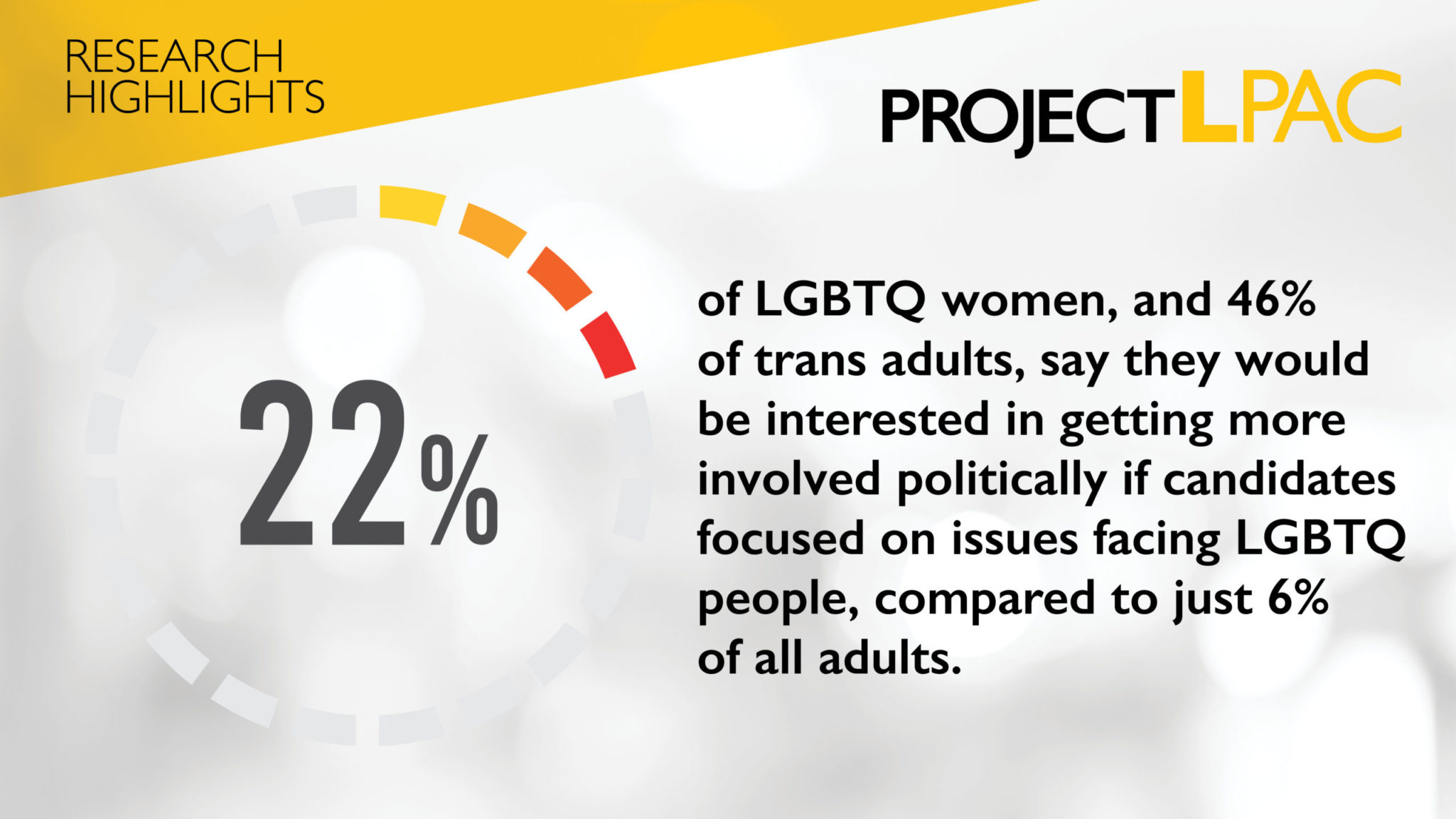
Additionally, LGBTQ women of color are much more likely to get involved in politics when candidates share their background or identity — and talk about it. LGBTQ women remain underrepresented at all levels of elected office, but they have been running — and winning — in record numbers since 2018. Our research shows that those increasing numbers of LGBTQ women candidates will gain votes in their community by discussing their identity.
There are about 6.4 million LGBTQ women of voting age in the U.S., a huge opportunity for a candidate willing to take the time to speak to that community’s concerns directly. LGBTQ women are here, waiting to be recognized. Candidates, don’t pass up the opportunity.




